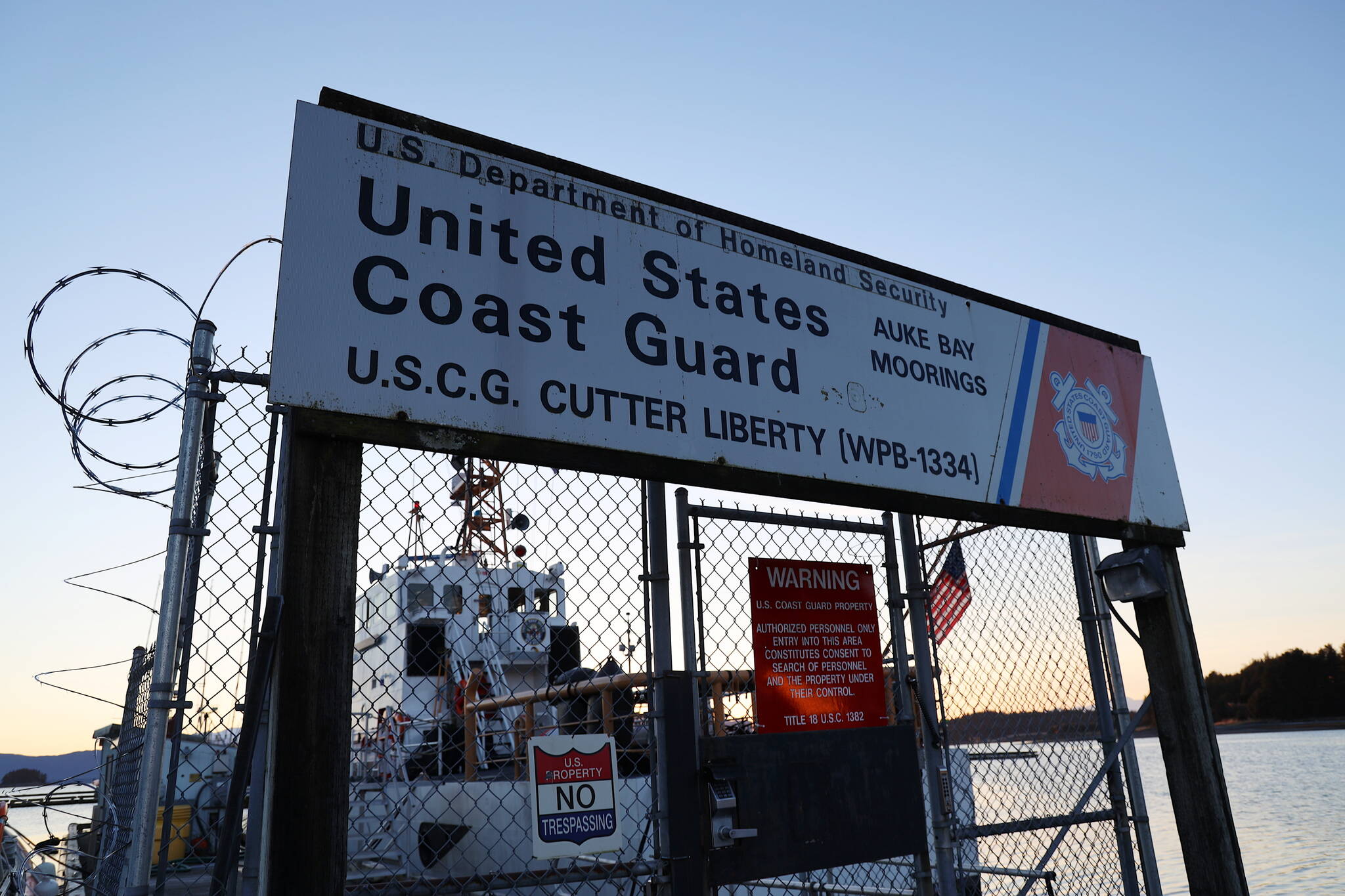A privately owned icebreaker with a controversial history may soon be purchased by the U.S. Coast Guard and based in Juneau to boost its Arctic presence, stationing 190 additional personnel plus their dependents here as well, U.S. Sen. Dan Sullivan said Wednesday.
Proposals to purchase the 10-year-old Aiviq icebreaker from Edison Chouest Offshore have been made since 2015, with former U.S. Rep. Don Young among the primary advocates. But the Coast Guard has repeatedly rejected the idea, stating the vessel was “not suitable for military service without substantial refit.”
Edison was Young’s largest campaign donor at that time, and Sullivan has received a $27,000 donation from the company, according to Federal Election Commission filings, but the senator said obtaining the icebreaker now while more capable ships destined for Alaska are being built is essential to what the military calls a national security shortfall in the far north.
“We need icebreakers today,” Sullivan said. “Russians have 54, and many are nuclear and many are weaponized. We have two and they’re in Seattle.”
One of the two in Seattle is out of service for retrofitting, he added. While six more-capable icebreakers have been authorized and three are being built, they’re years from being put into service.
“I went into this knowing it wasn’t going to be as technically advanced as the ones we’re building but I guarantee this: it’s going to be as advanced as the ones we have,” Sullivan said.
Juneau is currently the preferred home port for the vessel, rather than a more northerly port in Anchorage or along the west coastline, based on a community assessment by the Coast Guard, Sullivan said.
“They looked at a number of different communities, they looked at land, at schools, they looked at medical facilities, they looked at a whole range of interests,” he said.
In addition to the existing Coast Guard dock at Auke Bay being capable of accommodating the 110-meter-long icebreaker, the facility is adjacent to land owned by the National Oceanic and Atmospheric Administration that is being considered for transfer to the city, Sullivan said. That would be used for buildings and other infrastructure — costing a couple hundred million dollars – to help support the estimated 190 enlistees and 400 dependents resulting from the ship’s home port designation.
“This is going to be huge there,” he said, but emphasized “we’re not there yet.”
Funding to acquire the icebreaker, expected to cost from $125 million to $150 million, as well as for the land acquisition are still pending in Congress, although Sullivan said he’s optimistic they will be approved by the end of the year.
“We’re going to work it hard and we’ve been working this Coast Guard bill for months,” he said. “I think it’s likely, but I don’t want to jinx it.”
The Aiviq, completed in 2012, was built by Edison Chouest Offshore to support Royal Dutch Shell’s drilling operations in the Beaufort and Chukchi Seas. But the ship almost immediately made national news when it suffered mechanical failure and lost control of an oil rig it was towing, with the rig running aground off Kodiak Island.
That didn’t prevent efforts to get the Coast Guard to purchase the ship, initiated in 2015 by U.S. Rep. Duncan Hunter of California. Young joined the effort the following year.
The Aiviq is somewhat less capable than the Coast Guard medium icebreaker Healy, which visited Juneau early this month after a four-month Arctic deployment before returning to its home port in Seattle. The privately owned vessel is classified as ABS A3, meaning it can operate independently in the Arctic offshore shelf for half of the year and in the stable pack ice of the Central Arctic on “short-term, short-distance entries during July through December.”
Sullivan said an evaluation of numerous icebreakers available worldwide have been evaluated during the years acquiring the Aiviq has been under consideration. But currently it is the most-suitable option and the only such available icebreaker in the U.S.
“My goal as Alaska senator has been to get an icebreaker in Alaska,” he said.
• Contact reporter Mark Sabbatini at mark.sabbatini@juneauempire.com

